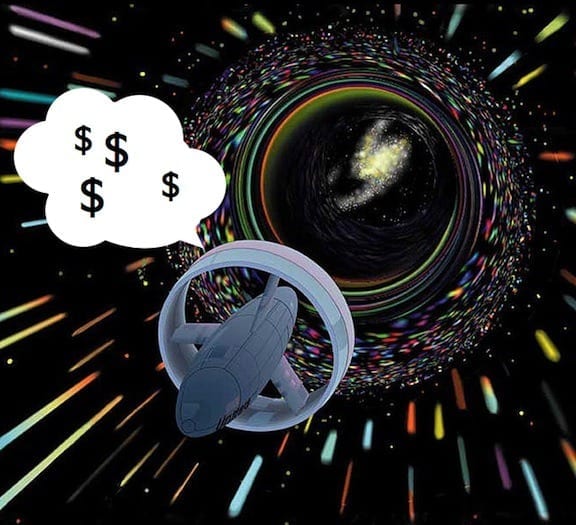
New brain-mimicking artificial intelligence software can read security images called CAPTCHAS as well as people do, its developer says–but scientists are skeptical
Luis von Ahn has heard it all before. As co-inventor of the CAPTCHA, those annoying images composed of wiggly letters and numbers that Web sites use to make sure you’re a human rather than a machine, von Ahn has received as many as 50 claims over the past decade of ways to beat his program.
Make that 51.
The start-up Vicarious, based in Union City, Calif., claims it has come up with artificial intelligence (AI) software that reads images nearly as well as humans and can crack a CAPTCHA 90 percent of the time. If the claims are true, they could signify a breakthrough in building AI that is indistinguishable from human cognition—at least when it comes to helping computers identify and understand images.
Vicarious calls the architecture its AI system is based on a “recursive cortical network,” meaning it is modeled along the line of the human neocortex—the brain’s gray matter that processes information. This approach allows AI software to learn new things from a few examples, much as a human child comes to understand the world by learning to recognize what he sees and figuring out how the images are connected.
Vicarious’s approach differs from AI methods such as “deep learning,” in which software trains an artificial neural network by providing thousands of training images for it to connect, according to the company. “The human brain is made up of a simple, replicated circuit—a single repeated element that happens over and over again in the neocortex,” Vicarious co-founder D. Scott Phoenix says, adding that his company’s software is likewise built from single, repeated elements.
Solving a CAPTCHA (for Completely Automated Public Turing test to tell Computers and Humans Apart) clears the bar that mathematician Alan Turing set in 1950 to determine whether a machine could be said to possess a humanlike intelligence, although in a limited way. Over the years other computer scientists and hackers have found ways to program computers to pass the CAPTCHA test, forcing Web publishers to employ increasingly more complicated CAPTCHAs that are difficult to decipher in their efforts to repel increasingly sophisticated spamming tactics.
Vicarious’s CAPTCHA-solving demonstration is an example of “narrow artificial intelligence,” a technology that can match or even exceed human performance on a narrowly defined task. IBM’s chess-playing Deep Blue is another such example. But Vicarious insists its computer perception software is the foundation of an AI that will learn the way humans do—by experiencing the world around it, principally via vision, and then identifying patterns. “If an algorithm solves vision in general, it is not narrow AI, it’s a general AI system,” says, Dileep George, also a Vicarious co-founder. “We are working on a general algorithm for solving [the] vision problem, and CAPTCHA is a stepping stone to that.”
One reason computers scientists are skeptical about Vicarious’s claim is that the company has kept its technology under wraps. It demonstrated the software on video, which showed its technology solving CAPTCHAs from major Web sites, rather than by publishing its findings in scientific journals. Nils Nilsson, emeritus professor at Stanford University and author of The Quest for Artificial Intelligence: A History of Ideas and Achievements, says Vicarious’s claim is significant but he has reservations. Vicarious, he says, uses “the CAPTCHA thing as just one test case to show how well their technology works. I’d say, okay, that’s probably a pretty good advance, but I would need to know more.”
Go deeper with Bing News on:
Computer Vision
- Computer Vision Model to identify different plants.
These are the current state-of-the-art for plant identification. ResNet: Known for its accuracy and efficiency, especially variants like ResNet-50 or the customized ResNet26 for plant images.
- The Role of Computer Vision in Cybersecurity
As the cybersecurity arena is often changing from day to day, organizations are constantly searching for new methods that will better their odds of successfully keeping cybersecurity out of their ...
- How Computer Vision Is Transforming Cybersecurity
Explore how computer vision revolutionizes cybersecurity, enhancing threat detection and surveillance systems through innovative technology.
- Computer Vision Market Ethnography Techniques for Deeper Consumer Understanding A Strategic Approach
Computer Vision Market is valued approximately at USD 11 billion in 2019 and is anticipated to grow with a healthy growth rate of more than 7.8% over the forecast period 2020-2027. A computer vision ...
- Apple acquires French computer vision, facial analysis startup
Datakalab has described itself as “experts in low power, runtime efficient, and deep learning algorithms” that can work effectively on portable devices.
Go deeper with Google Headlines on:
Computer Vision
[google_news title=”” keyword=”Computer Vision” num_posts=”5″ blurb_length=”0″ show_thumb=”left”]
Go deeper with Bing News on:
Brain-mimicking artificial intelligence software
- iOS 18 could be loaded with AI, as Apple reveals 8 new artificial intelligence models that run on-device
A pple has released a set of several new AI models that are designed to run locally on-device rather than in the cloud, possibly paving the way for an AI-powered iOS 18 in the not-too-distant future.
- Inside the China-US Competition for AI Experts
And if you look within top US institutions where top AI talent work, it really is almost a Chinese-American duopoly. Chinese-origin and American AI scientists are 75% of the top AI talent within US ...
- Emulating neurodegeneration and aging in artificial intelligence systems
In recent years, developers have introduced artificial intelligence (AI) systems that can simulate or reproduce various human abilities, such as recognizing objects in images, answering questions, and ...
- Unleashing the Power of Voice: Exploring Meta Voicebox AI
VoiceBox AI is such a device that enables us to shape a new voice-controlled world, thereby making interaction the easiest ever.
- 💻 Intel unveils the world's largest neuromorphic computer, mimicking the human brain
As artificial intelligence (AI) continues to expand its presence in our daily lives, Intel has recently unveiled Hala Point, the largest neuromorphic system in the world. This ...
Go deeper with Google Headlines on:
Brain-mimicking artificial intelligence software
[google_news title=”” keyword=”brain-mimicking artificial intelligence software” num_posts=”5″ blurb_length=”0″ show_thumb=”left”]









